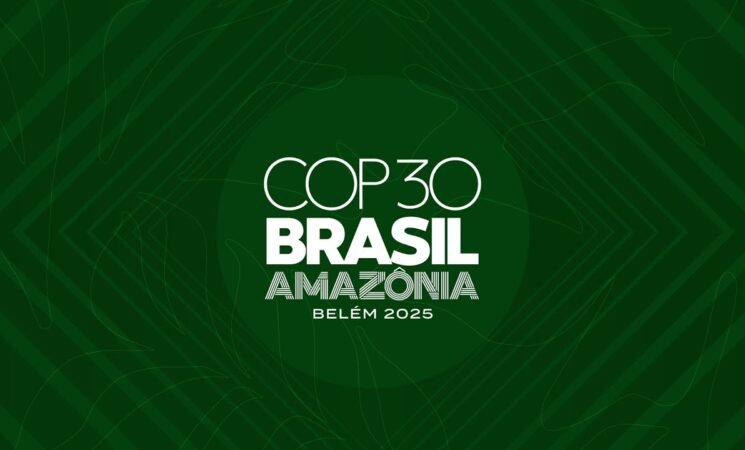26 May 2025, NIICE Commentary 11058
Aditya Ranjan
With heightened expectations following the sobering realities of COP29, the world's focus now shifts to Brazil's Amazon rainforest, where COP30 will take place in Belém in November 2025. The last Baku conference revealed the ongoing gaps between climate rhetoric and action that COP30 needs to address immediately, even though it also produced some noteworthy financial commitments.
Legacy from Baku
The creation of a new climate finance target expressly designed to assist developing nations in tackling climate concerns was the most important accomplishment of COP29. In acknowledging that climate action cannot be successful without sufficient financial help for the most vulnerable countries, this is an important step forward. But this progress was made in the midst of alarming global trends that highlight how urgent COP30 is. The harsh truth is that the nation's present obligations are still dreadfully insufficient. According to a recent study, current commitments with unconditional targets would still result in 1.96°C of global warming by 2100, which is far more than the 1.5°C target set by the Paris Agreement. Even worse, studies indicate that temperature increases would probably be much higher than 2°C, which would have disastrous effects on human health and environmental stability. As a result, there are high expectations for Brazil's next presidency.
An Opportunity or a Challenge for Brazil
Belém's selection as the host city for COP30 has more than just symbolic meaning; it puts the meeting right in the middle of one of the planet's most important climate systems. Given that the Amazon is thought to be vital to the future of the planet, Brazil's position as the steward of the most biodiverse nation in the world brings with it both tremendous opportunity and pressure.
Brazil has pledged at COP28 to reduce greenhouse gas emissions by 48% by 2025 and 53% by 2030. These latest climate promises are encouraging. However, there is still a concerning disconnect between Brazil's foreign policy and its actual internal policies. As the nation takes on the COP30 presidency, its complicated connection with environmental protection—which swings between leadership and destruction—will come under closer scrutiny than before.
Health factor
The increasing inclusion of health factors in climate discussions has been one of the most important developments since COP29. In recognition of the close connection between human health and climate change, COP28 established the first-ever Day of Health. With more than 40 million health professionals joining calls for health to be prioritized in climate discussions, this effort gathered momentum. The case for immediate climate action based on health has grown stronger. The previous 20 years have seen a more than 50% increase in heat-related mortality among those over 65. Dehydration, tropical diseases, cardiovascular problems, and mental health effects have all increased due to rising temperatures, and the most disadvantaged groups have been disproportionately affected. In order to develop more persuasive action narratives, COP30 has to expand on this health-climate relationship.
Challenges in Implementation
The ongoing implementation gap between climate commitments and actual progress is arguably the most important issue facing COP30. According to the Global Stocktake process, just 72 nations have comprehensive carbon neutrality policy frameworks, despite the fact that 151 countries currently strive for carbon neutrality, up from 133 in 2023. A key issue that COP30 needs to overcome is the discrepancy between ambition and execution. There are increasing expectations for COP30 to provide tangible operational frameworks in light of the recent emphasis on loss and damage mechanisms, particularly the agreement at COP28 to create "The Loss and Damage Fund" for nations at risk from climate change. Brazil is in a unique position to advocate for efficient loss and damage mechanisms because of its own experience with the effects of climate change, from extreme weather events to biodiversity loss.
COP30 reaches a pivotal point. As many had predicted, the first Global Stocktake has revealed that existing efforts are not enough to reach the goals of the Paris Agreement. With forecasts indicating that negative emission technologies will be considerably more important than previously thought, the window for keeping warming to 1.5°C is fast narrowing. It is impossible to overestimate the significance of gathering in the Amazon, a place that is both a canary in the coal mine for environmental disaster and a worldwide climate solution. Belém provides a chance to focus conversations on nature-based solutions and the inherent significance of biodiversity conservation, in contrast to Baku's oil-producing backdrop.
Way forward
COP30 must go beyond the incremental advancements demonstrated by COP29's financial commitments toward transformative change if it is to succeed where earlier conferences have failed. This entails strengthening the Global Methane Pledge, pledging to achieve mid-century net-zero goals for every nation, and establishing legally binding procedures to guarantee that these pledges are followed by quantifiable action. The presidency of Brazil has the chance to use its special position to close the ongoing gap between the climate responsibilities of wealthy and developing countries. The global importance of the Amazon offers a convincing argument for why everyone benefits from swift, bold action, not just those who are most directly impacted by climate change.
As the globe gets ready for COP30, the stakes are quite high. Perhaps this conference is our opportunity to substantially bend the emissions curve to prevent the worst climate scenarios. Amidst the Amazon's grandeur and vulnerability, Brazil's leadership must rise to the occasion with the zeal and determination that justice and science demand. Beyond merely being a geographical route, the voyage from Baku to Belém represents a test of humanity's ability to put long-term survival ahead of immediate convenience. The success of COP30 will be determined by whether or not it ultimately turns climate pledges into the swift, structural change that our world sorely needs, not by the beauty of its statements.
Aditya Ranjan is a Doctoral Candidate at the School of International Studies, Jawaharlal Nehru University, New Delhi.

